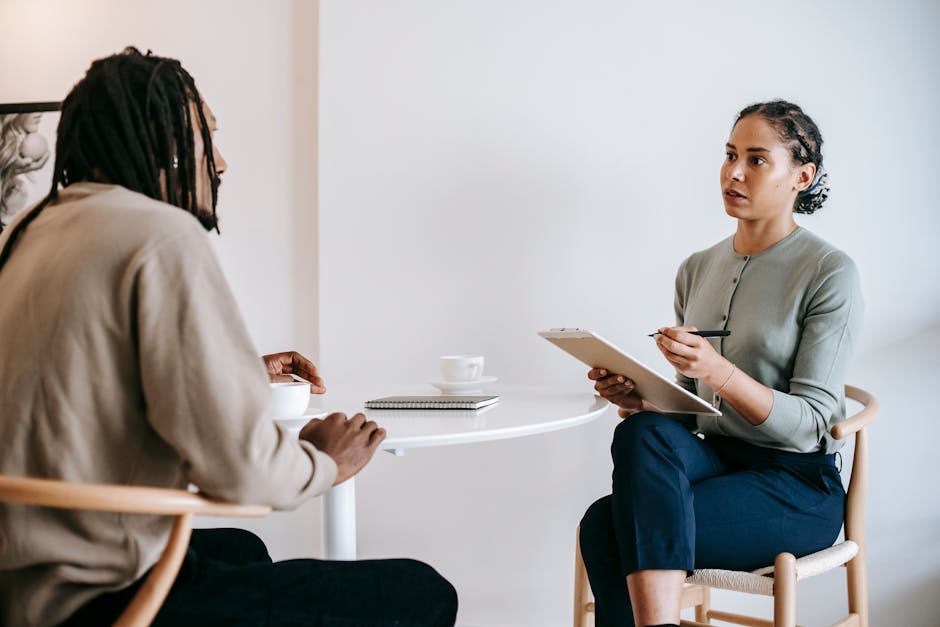How to Stay Confident During Job Interviews
Job interviews can be nerve-wracking. You’re sitting across from someone who’s evaluating everything, from the way you answer questions to the way you carry yourself. But here's the thing: confidence isn't about being fearless or knowing all the answers. It's about owning who you are and presenting that authentically.

Preparation: Your Confidence Foundation
Confidence often stems from feeling prepared, so make this your starting point. Research the company thoroughly. Look up their mission, values, recent projects, and even the interviewer if their name is available. LinkedIn is a great resource for this. Knowing these details helps you tailor your responses and shows that you’re genuinely interested in what they do.
Another part of preparation is practicing common interview questions. For example, if someone asks, “What’s your biggest weakness?” you don’t want to stumble through an awkward answer. Instead, have a response ready that frames a past challenge as something you’ve worked to improve. For instance, “I used to struggle with delegating tasks, but I’ve learned to trust my team more by focusing on clear communication.”
Finally, don’t underestimate the power of mock interviews. Ask a friend or family member to play the role of the interviewer. They might spot areas where you could polish your answers or improve your body language. Hearing yourself speak aloud will also make you more comfortable when it’s time for the real thing.
The Role of Body Language
Your words matter, but so does how you physically present yourself. Studies from Harvard Business School have shown that nonverbal cues like posture and facial expressions heavily influence how others perceive us. Sitting up straight signals attentiveness and professionalism, while a warm smile conveys approachability.
A good handshake is another detail worth practicing, firm but not crushing. Too limp, and it may come across as uninterested; too strong, and it might feel overpowering. If handshakes aren’t part of the culture where you’re interviewing, ensure your greeting still feels confident with direct eye contact and a respectful nod.
One effective trick is what psychologists call "power posing." Before your interview, spend two minutes standing in a posture that makes you feel strong, hands on hips or arms raised overhead like a champion crossing a finish line. This simple exercise can help reduce stress hormones and boost feelings of confidence.
Managing Nerves
Nerves are natural during interviews; even seasoned professionals experience them. The trick is not letting them control you. One method that works well for many people is focusing on controlled breathing. Take deep breaths in through your nose for four seconds, hold for four seconds, then exhale through your mouth for six seconds. This slows down your heart rate and calms the mind.
An additional technique is reframing how you think about nerves altogether. Instead of viewing them as a negative sign (like “I’m too anxious”) see them as evidence that you care about the outcome. Nervous energy can often sharpen focus if channeled correctly.
If you find yourself losing focus mid-interview because of jitters, subtly ground yourself by pressing your feet firmly into the floor or gently clasping your hands together under the table to create a sense of stability.
The Power of Authenticity
One major misconception about confidence is that it requires perfection, but it doesn’t. In fact, trying to be flawless often comes off as insincere or robotic during interviews. Instead, lean into authenticity.
If there’s something you don’t know during the conversation, don’t panic or try to bluff through an answer. A simple “That’s a great question; I’d love to explore that further” shows honesty and willingness to learn, a quality most employers value highly.
Another way authenticity shines through is in storytelling. When asked about past experiences or accomplishments, weave in specific examples rather than generic statements. For instance, instead of saying “I’m good at problem-solving,” share how you once resolved a tricky situation at work by creating an innovative solution under tight deadlines.
Ending Strong
The final moments of an interview often leave a lasting impression, so use this time wisely. If they ask if you have any questions (and they almost always will) make sure you’ve prepared thoughtful ones beforehand.
- “What does success look like in this role after six months?”
- “How do team members typically collaborate on projects here?”
- “What excites you most about working at this company?”
These kinds of questions show genuine interest and curiosity while giving you valuable insights into whether the job aligns with what you’re looking for.
Finally, thank the interviewer sincerely for their time and reiterate your enthusiasm for the opportunity before leaving. A handwritten thank-you note sent afterward (or an email if time is tight) is another great way to reinforce your positive impression.
Pep Talk Before You Go
The reality is that no one expects perfection, they’re looking for someone who’s capable, willing to learn, and easy to work with. Confidence isn’t about pretending to be someone else; it’s about trusting that who you already are brings value to the table.
If things go well? Fantastic! And if they don’t? Use it as an opportunity to grow and refine your approach for next time. After all, every interview (even one that doesn’t result in an offer) is practice toward becoming more confident in presenting yourself professionally.